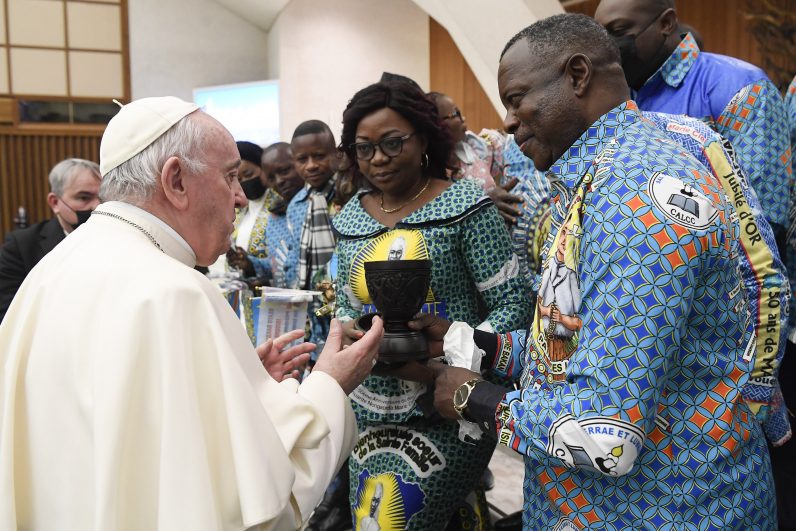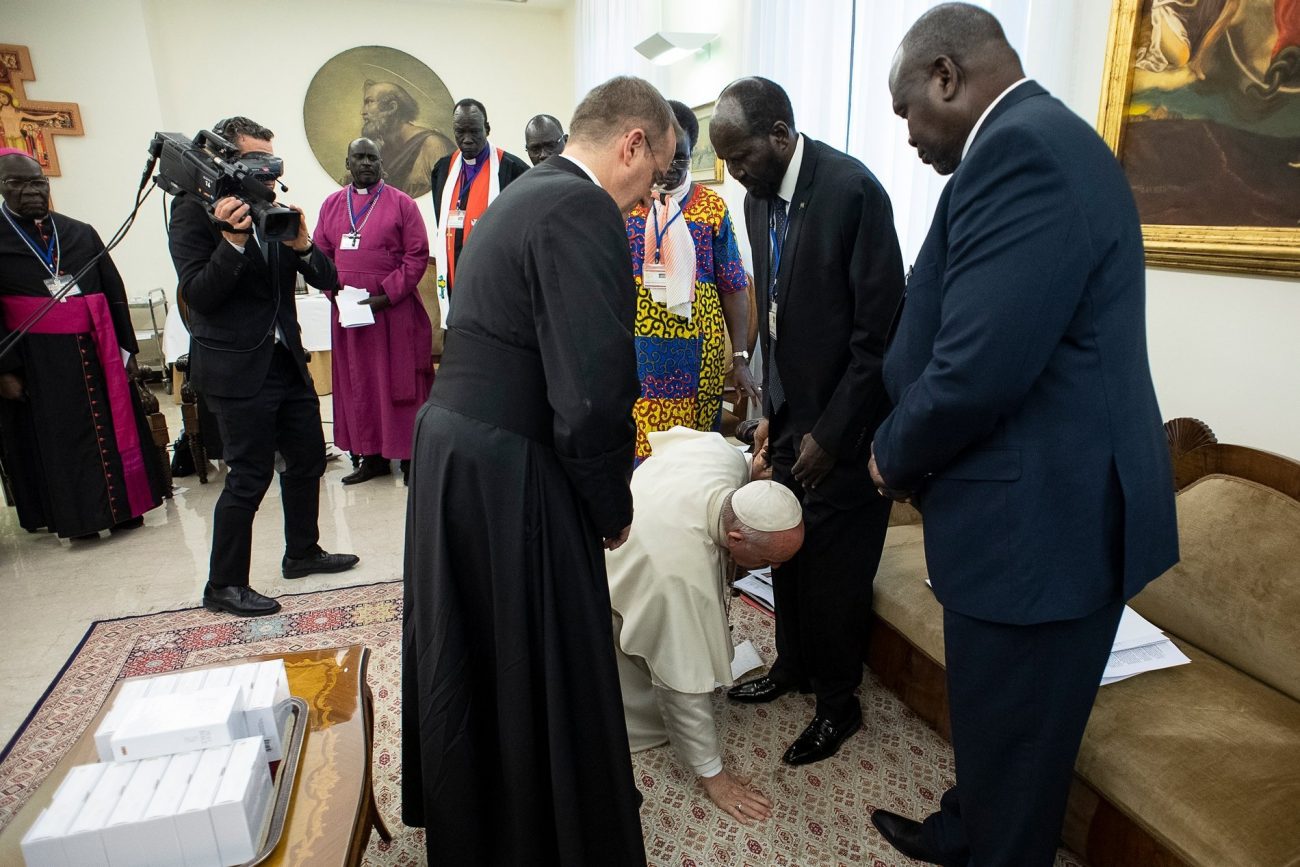VATICAN CITY (CNS) — Pope Francis will travel to the war-scarred countries of Congo and South Sudan in early July, the Vatican press office said.
“At the invitation of their respective heads of state and bishops,” the pope will visit Kinshasa and Goma in Congo July 2-5 and Juba, South Sudan, July 5-7, said Matteo Bruni, director of the Vatican press office.
The Vatican’s announcement March 3 said further details would be provided later.
Chris Cox, the head of media for Anglican Archbishop Justin Welby of Canterbury, told Catholic News Service that the archbishop and the moderator of the Presbyterian Church of Scotland will join Pope Francis in Juba.
[tower]
The pope, the archbishop and the moderator have been supporting the work their counterparts in South Sudan have been doing for years to encourage peace, dialogue and reconciliation among competing political factions.
Most famously, in April 2019 at the suggestion of Archbishop Welby, Pope Francis hosted a spiritual retreat at the Vatican with the leaders of all the warring political factions and clans.
At the end of the retreat, Pope Francis knelt at the feet of the leaders of South Sudan, begging them to give peace a chance and to be worthy “fathers of the nation.”
After kneeling and kissing the feet of the leaders, Pope Francis told them, “As a brother, I ask you to remain in peace. I ask you from my heart, let’s go forward. There will be many problems, but do not be afraid.”
“You have begun a process, may it end well,” he said. “There will be disagreements among you, but may they take place ‘in the office’ while, in front of your people, you hold hands; in this way, you will be transformed from simple citizens to fathers of the nation.”
South Sudan became independent from Sudan in 2011 after decades of war. But, just two years after independence, political tensions erupted into violence.
At the request of local religious leaders, Pope Francis, Archbishop Welby and moderators of the Church of Scotland have been talking about visiting South Sudan since 2016.
When Archbishop Welby visited the pope in November 2019, “the Holy Father and the archbishop of Canterbury agreed that if the political situation in the country permits the creation of a transitional government of national unity in the coming 100 days, according to the timing set by the recent agreement signed in Entebbe, in Uganda, it is their intention to visit South Sudan together.”
But the deadline for forming the transitional government was postponed and so was the religious leaders’ trip.
Writing to the South Sudanese politicians at Christmas in 2020, Pope Francis, Archbishop Welby and the Rev. Martin Fair, moderator of the General Assembly of the Church of Scotland, told them, “When we visit, we long to bear witness to a changed nation, governed by leaders who, in the words of the Holy Father last year, ‘hold hands, united … as simple citizens’ to ‘become Fathers (and Mothers) of the Nation.'”
Last July, Pope Francis, Archbishop Welby and the Rev. Jim Wallace, who succeeded Rev. Fair, marked the 10th anniversary of South Sudan’s independence and again promised to visit the country when it has a stable peace.
Pope Francis had told a reporter in October that he also hoped to visit Congo in 2022, a nation where about 50% of the population is Catholic. The church has long been involved in peace efforts in the country, where fighting among a variety of armed groups — both from Congo and from neighboring countries — has led to death and especially to internal displacement.
By the end of 2020, at least 5.3 million Congolese had been displaced within their country, mostly because of conflict and violence, according to the Internal Displacement Monitoring Centre.
In early February, Archbishop Marcel Utembi Tapa of Kisangani, president of the bishops’ conference, told Catholic News Service church officials are very worried about continued attacks on civilians by armed groups, as reports of the death of dozens in a camp of internally displaced persons emerged.
At least 59 people in Plaine Savo displacement camp in the eastern province of Ituri were killed and about 40 others injured Feb. 1. The camp is home to nearly 24,000 people, who fled previous attacks in the area in 2019.

Pope Francis greets pilgrims from Congo during his general audience in the Paul VI hall at the Vatican March 2, 2022. (CNS photo/Vatican Media)
PREVIOUS: Church leaders urge Russian patriarch to speak with Putin
NEXT: Pope removes Puerto Rican bishop from office



Share this story